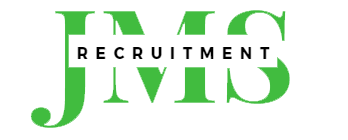- Home
- Interviews
Interviews
Interviews
How to succeed in your Interview
Do your research
Before the interview, it is a good idea to gather information about the company that has the position vacant and try to relate your experience to the job spec.

Dress for success
At an interview it is extremely important to look, act and dress professionally as you won’t have a second chance.
Ideally, a business suit should be worn – although check with your recruiter for indications of the office culture.
Clean shoes, clean finger nails and clean, well-groomed hair are important.
Research has shown that an interviewer forms their impression within the first eight seconds of meeting a candidate. The remainder of the interview is either spent confirming this opinion, or turning it around.


Practice Interviewing
- Enlist friends or colleagues to ask you sample questions
- Practice making eye contact
- Video record your practice sessions - pay attention to body language and verbal presentation
- Eliminate verbal fillers, like “uh,” and “um.” Practice using positive body language to signal confidence
- Handle logistics early - have your clothes, CV, and directions to the interview site ready ahead of time.

Anticipate likely questions
To get to the motivations and working style of a potential employee, employers often turn to behavioural interviewing, an interviewing style which consists of a series of probing, incisive questions. This may sound a little intimidating; however with a little preparation you can feel confident before the interview.
During the Interview
After the Interview
Following your interview, remember to give immediate feedback to your recruitment consultant. This needs to include any areas you felt you may have fallen down on – perhaps you have a nagging doubt about a specific answer you gave or forgot to highlight a certain valuable skill or experience.
Your consultant can cover this for you in his or her call to the employer. If you were interviewed directly, send a thank you email, expressing enthusiasm and keenness to join the company. Sent in the evening or the next day, this email can be an important factor in employer’s decision-making process.

Interview Preparation: Employer Research
Have you prepared enough for your interview?
We’ve collected some advice below to help you find out as much as possible in advance of your interview.
If you’ve reached interview stage, you must dedicate as much time as possible to learning more about the background of your chosen company. Their website is an obvious starting point and can help you find the following:
- Company values, culture and atmosphere
- Social media pages
- Past projects or case studies
- Publications, press releases and marketing


Make sure you search social media for any news stories which may make talking points. The more information you have, the more you can engage with your interviewer. Questions about previous projects and how they performed reflect excellently on you, so look out for press releases in particular as these will highlight their recent successes.
While having a better handle on the values and history of the organisation will give you more to talk about, it will also help you to see if you would fit well within the team. The interview is as much an opportunity for you to get an impression of the culture as it is an assessment of you.
Your recruiter has developed their own rapport with your interviewers so they can give you some behind the scenes information if you ask for it.
They’ll be able to inform you of the atmosphere of the office, the types of people you’ll be meeting and the level of formal dress required. You’ll always need to be smart, but a full suit and tie may appear too stuffy for some organisations.
How to answer difficult interview questions
Here are three ways to help you do just that:
Before you begin the job search process you need to identify the real reasons motivating you to find a new job. There are some circumstances, such as redundancy, that are self-explanatory, but if you feel that you have reached the natural end of your current job then you need to examine why this is, and make sure these motivations match the jobs you are applying for.
If you give your reason for leaving as lack of opportunity then an interviewer will be wondering why your current employer couldn’t facilitate your growth, so be clear on the reasons why.
A much better answer than “I need a new challenge” would be:
- “due to the size of the company they couldn’t offer study support” or,
- “I am qualified now and they couldn’t offer me a role fitting my experience.”
This will show you know what is needed to further your career and are clear in your motivations.
Reasons for leaving – Professionals are often declined at interview because employers just don’t believe they are motivated enough, or their reasons for leaving won’t be resolved in the new role. For example, you may say you aren’t getting enough management accounts experience – but if the new role is similar the employer will be worried you won’t enjoy this job either.
Career plan – If you say you’d like to be a Director in 5 years, an employer may think this is not realistic in their company and that they are the wrong fit for you.
Salary – Do your research if you are looking for a higher salary, to see if your skills and experience can command in your local area and whether your demands are realistic.
By understanding your motivations for leaving and making that your new role reflects these motivations, you are more likely to be able to answer these questions and find the right job for you.

Answering competency-based Interview questions
Do you know how to portray your skills in an interview?
To get to the motivations and working style of a potential employee, employers often turn to behavioural interviewing. This consists of a series of probing, incisive questions which may sound a little intimidating; however with some preparation you can feel confident before the interview.
One of the most common interview methods used to test for competencies is called the STAR technique:
- Situation - describe a situation you were in
- Task - tell them what you decided to do
- Action - describe what you actually did
- Result - explain what happened as a result of your actions.
Review the job description in order to identify the skills the organisation is looking for. For each of these, try to think of specific examples of times when you have demonstrated those behaviours.
Download our step-by-step guide on how to approach competency with example interview questions.
Delivering Interview Presentations
Approach your interview presentations with confidence
The actual delivery is all that can be seen. When at interview – whether it’s on the phone, face-to-face or through Skype – you are transmitting vibes that automatically translate to the workplace. They portray signals about your company culture, ethos and how you present yourself.
Interview presentations are often asked from a candidate if your role involves:
- Customer or client-facing
- Reporting back to or managing a team
- Progressing to management where good presentation skills are invaluable.


Below are a few tips on how to create a sound structure, which can automatically set the ground rules for allowing you to tell your potential employers why you are the right candidate for the job.
Preparing your Presentation
- make it visually appealing
- make your pitch perfect
- always prepare and run through the presentation several times before the interview to get used to the sound of your own voice
- avoid any technical issues
Power pose your way to success

How do you come across in interviews?
Even if you have the perfect CV and flawless answers to tough questions, your body language could give a negative impression. For example, if you are slouched in the chair, or tapping your foot or fidgeting, it will come across as if you are not listening, distracted or completely bored.
Body language tips
- Your first impression; think about how you will say hello and try to sit in a straight and upright neutral position.
- Rest your arms on the arms of the chair or your legs.
- Folding your arms and legs can be seen as an aggressive stance.
- Avoid touching your face and hair as it distracts the interviewer.
- Make lots of eye contact during the interview; when you are listening and when you are speaking.
Preparation for an interview always builds confidence and when you’re confident you have fewer body language issues.
Your body language and personality could be the game changer if you are up against someone with the same qualifications and experience.









